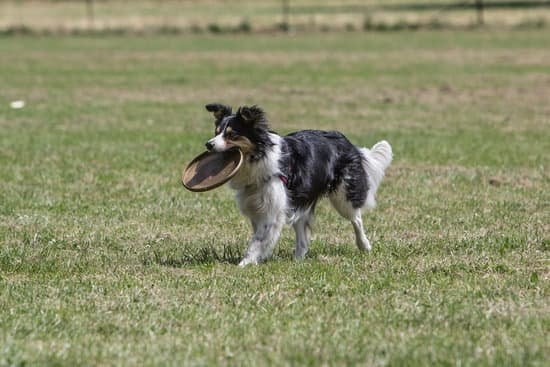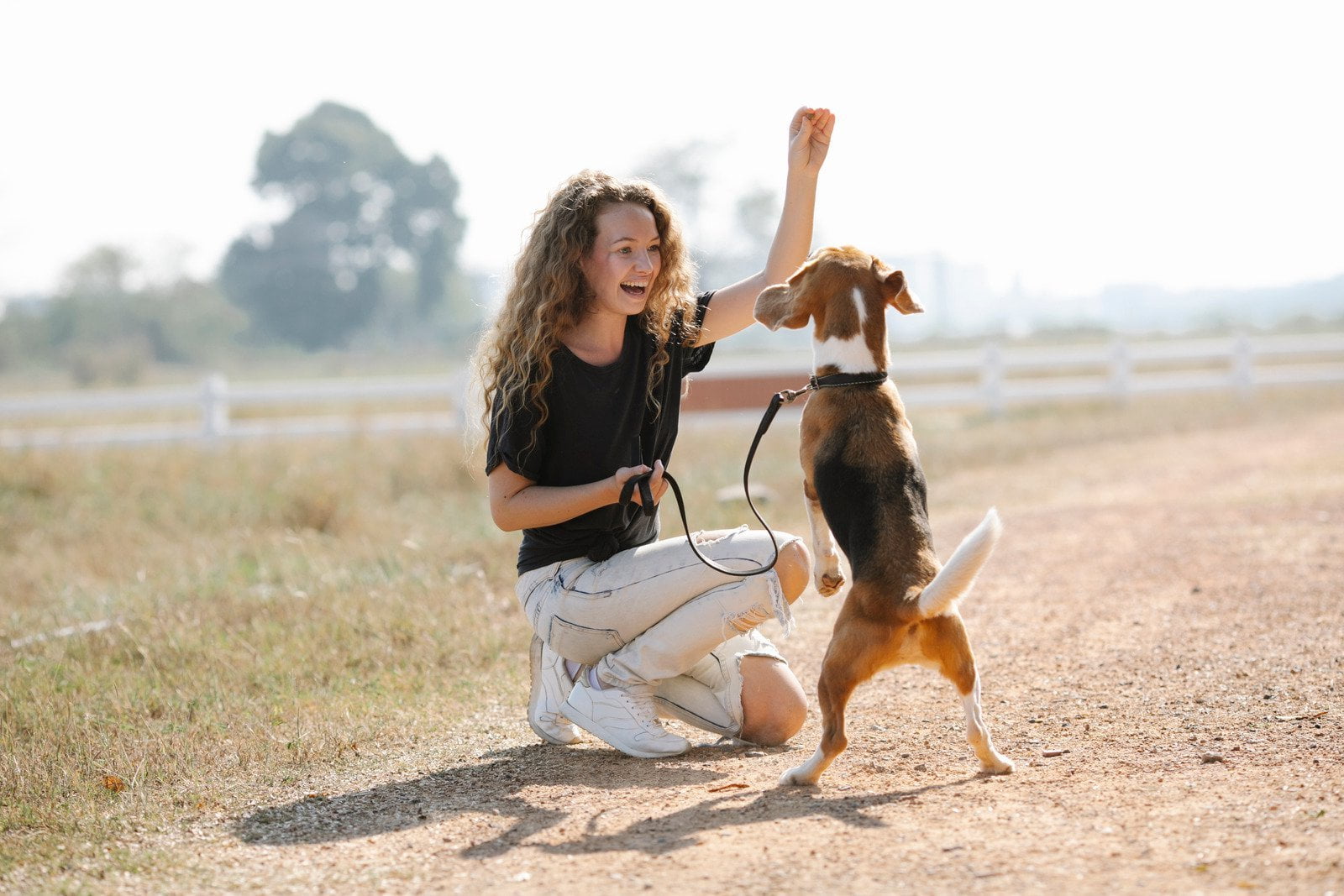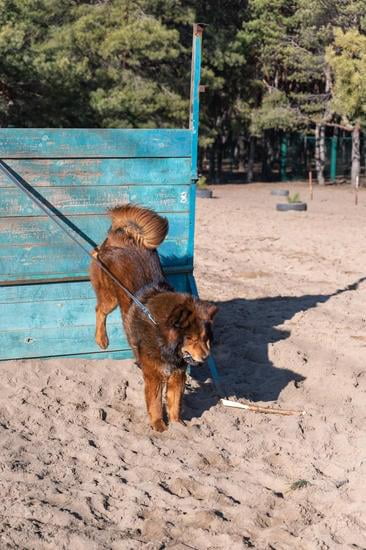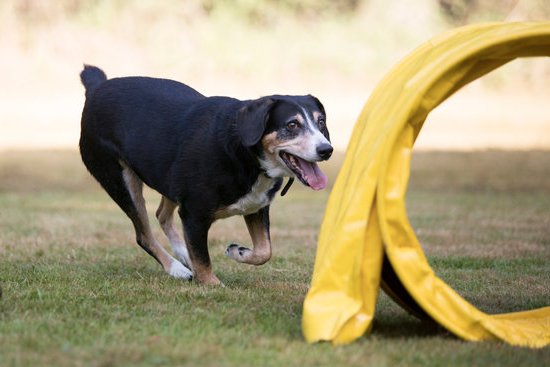Dogs bark for many reasons, but one of the most common is to warn their owners of potential danger. Barking at strangers can be a very protective behavior, but it can also be very annoying to neighbors and other people in the vicinity. If your dog barks at strangers, there are a few things you can do to help train him to stop.
The first step is to determine why your dog is barking. There are many different reasons, and the solution will vary depending on the specific situation. If your dog is barking out of excitement or fear, you will need to address those issues separately.
If your dog is barking out of fear, you will need to start by teaching him to associate strangers with good things. Begin by having someone your dog doesn’t know stand a few feet away from him and give him a treat. As your dog gets more comfortable with this, have the person move a little closer, and continue to give him treats. Once your dog is comfortable with a stranger being close by, have the person start to move around and even pet your dog.
If your dog is barking out of excitement, you will need to start by teaching him to calm down. Begin by having someone your dog doesn’t know stand a few feet away from him and give him a treat. As your dog gets more comfortable with this, have the person move a little closer, and continue to give him treats. Once your dog is comfortable with a stranger being close by, have the person start to move around and even pet your dog, but only if your dog remains calm.
If you have determined that your dog is barking at strangers because he is protective, you will need to start by teaching him to obey basic commands. Begin by teaching him to sit and stay. Once your dog is obeying these commands consistently, you can start to use them to stop him from barking.
When your dog is barking, tell him to sit and stay. If he obeys, give him a treat. If he doesn’t obey, tell him to sit and stay again, and this time, use a correction word (such as “no”) and give him a treat if he obeys. As your dog gets better at obeying commands, you can start to use them to stop him from barking at strangers even when they are far away.
How To Train Your Dog To Stop Being Protective
There is no question that a well-trained dog makes for a happy and safe home. However, one of the most common behavior problems dog owners face is when their dog becomes protective of them and their property. While this can be a sign of a strong and loyal bond between dog and owner, it can also be a major annoyance and safety hazard. Luckily, there are ways to train your dog to stop being protective.
The first step is to understand why your dog is becoming protective in the first place. Dogs can become protective for a number of reasons, such as fear of strangers, fear of other dogs, or territoriality over their home or family. Once you have determined the root cause of your dog’s protective behavior, you can start to work on correcting it.
If your dog is fearful of strangers, you will need to start by socializing them with lots of different people. This can be done in a variety of ways, such as taking them to pet stores, dog parks, or even just having friends and family over to your house. You will also need to be patient, as it may take some time for your dog to get used to strangers.
If your dog is fearful of other dogs, you will need to start by teaching them how to behave around other dogs. This can be done by taking them to a dog park or enrolling them in a basic obedience class that teaches how to interact safely with other dogs. As with socialization, it may take some time for your dog to learn how to behave around other dogs, but with patience and consistent training, they will eventually get the hang of it.
If your dog is territorial over their home or family, you will need to start by teaching them that there is nothing to be afraid of. This can be done by gradually introducing them to new people and places, and rewarding them for calm and relaxed behavior. You may also want to consider enrolling them in a socialization class, which will help them get used to meeting new people and animals.
Once you have determined the root cause of your dog’s protective behavior and started to work on correcting it, you will need to be patient and consistent with your training. Like any other behavior problem, it will take time and patience to train your dog to stop being protective, but with patience and perseverance, you will eventually be able to achieve the desired result.
How To Train Dog To Stop Barking At Guests
Dogs bark for many reasons, including excitement, fear, boredom, and territoriality. If your dog is barking at guests, there are a few things you can do to help train them to stop.
The first step is to determine why your dog is barking. If your dog is barking out of excitement, you will need to work on obedience commands to help them calm down. If your dog is barking out of fear, you will need to work on building their confidence. If your dog is barking out of boredom, you will need to provide them with plenty of exercise and stimulation. And if your dog is barking out of territoriality, you will need to work on teaching them to be more social.
Once you have determined the root of the problem, you can start working on a training plan. The goal is to help your dog associate guests with good things, such as treats or toys. You can start by having guests come over when your dog is calm and distraction-free. When your dog barks, have your guests ignore them or even leave the room. Once your dog has stopped barking, immediately reward them with a treat or a toy.
You can also practice “socializing” your dog with guests by having them come over for short periods of time and rewarding your dog for good behavior. Over time, you can gradually increase the amount of time your guests are in the room. Be sure to continue rewarding your dog for good behavior, even after they have stopped barking.
With patience and persistence, you can train your dog to stop barking at guests. It will take time and effort, but it is well worth it in the end.
How To Train Dog To Stop Scratching Door
Dogs will scratch doors for various reasons: boredom, anxiety, excitement, and for attention. If your dog is scratching your door, there are a few things you can do to help train him to stop.
The first step is to determine why your dog is scratching the door. Once you know the reason, you can start to train him to stop.
If your dog is scratching the door because he is bored, you can help to keep him entertained by playing with him or giving him toys to play with.
If your dog is scratching the door because he is anxious, you can help to calm him by providing a safe place for him to relax, like a crate or a designated spot in the house.
If your dog is scratching the door because he is excited, you can help to calm him by providing him with toys or treats that he can only get when he is calm.
If your dog is scratching the door for attention, you can help to train him by ignoring him when he scratches the door and rewarding him when he stops.
The best way to train your dog to stop scratching the door is to be consistent and patient. Keep rewarding him when he does the right thing and eventually he will learn that scratching the door is not the right thing to do.
How To Train A Dog To Stop Running Away
Dogs will often run away for a variety of reasons. They may be trying to escape an uncomfortable or dangerous situation, or they may be simply exploring their new surroundings. Regardless of the reason, it’s important to train your dog to stop running away.
There are a few different methods you can use to train your dog to stop running away. One popular method is to use a leash. When your dog starts to run away, calmly pull on the leash and guide them back to you. You can also use a command such as “come” to get your dog’s attention. Once they’re close to you, praise them and give them a treat.
Another method is to create a designated area in your yard where your dog is allowed to run and play. When your dog tries to leave this area, use a command such as “stay” to keep them in place. Once they’re calm, release them from the command and let them continue playing.
It’s important to be consistent with your training methods and to keep rewarding your dog for obeying your commands. With patience and perseverance, you can train your dog to stop running away.

Welcome to the blog! I am a professional dog trainer and have been working with dogs for many years. In this blog, I will be discussing various topics related to dog training, including tips, tricks, and advice. I hope you find this information helpful and informative. Thanks for reading!





